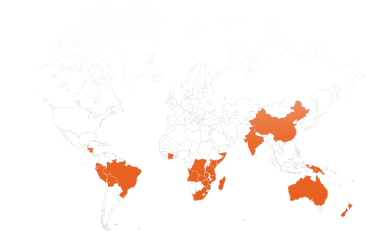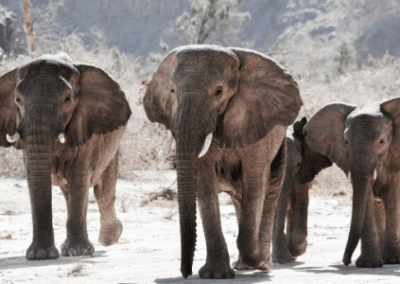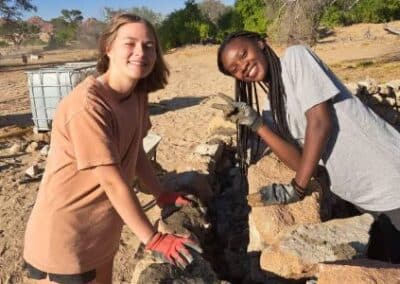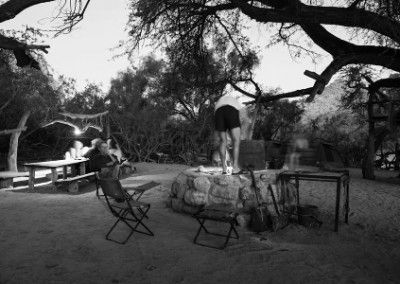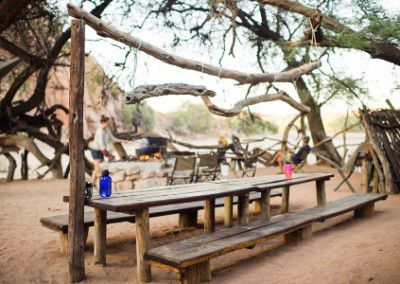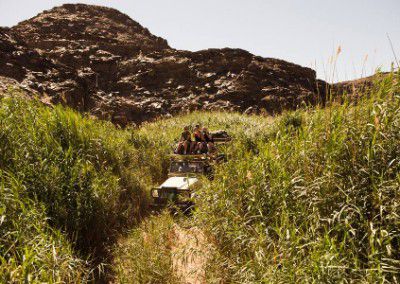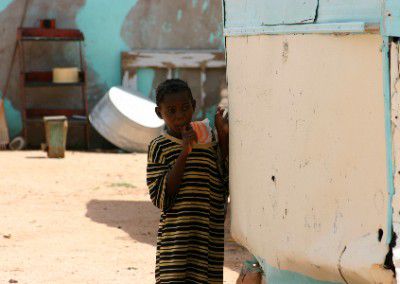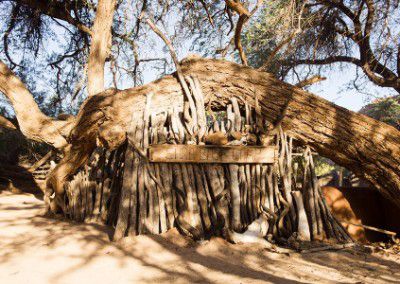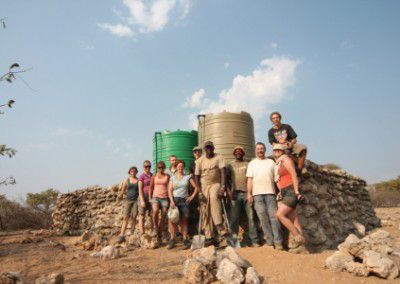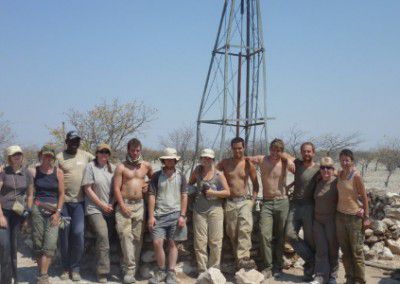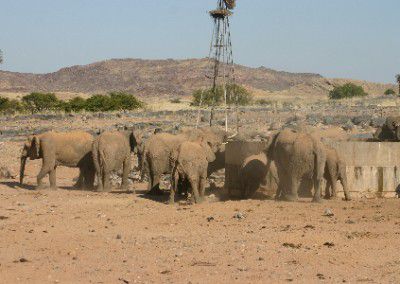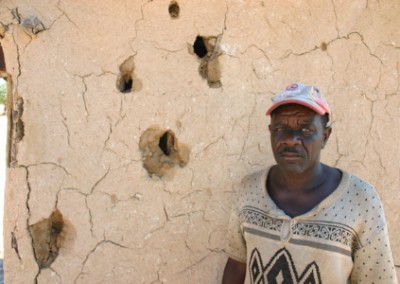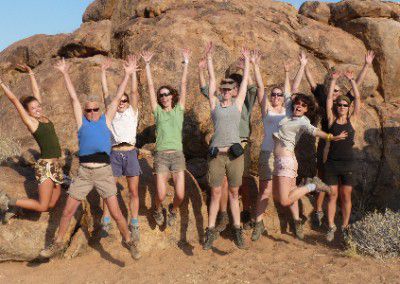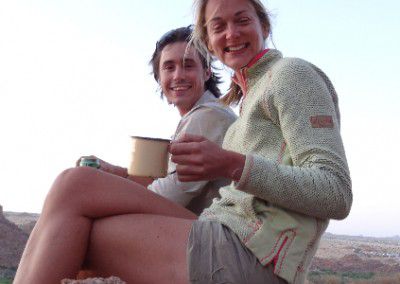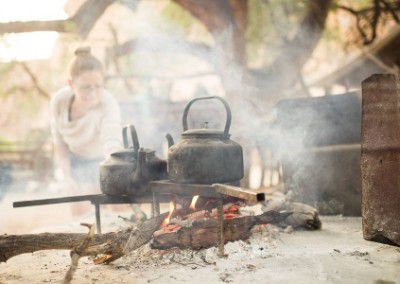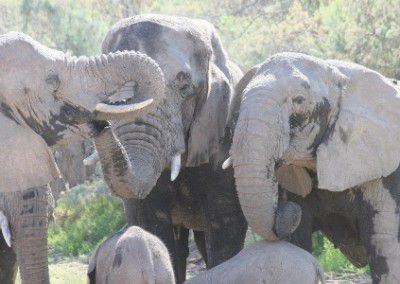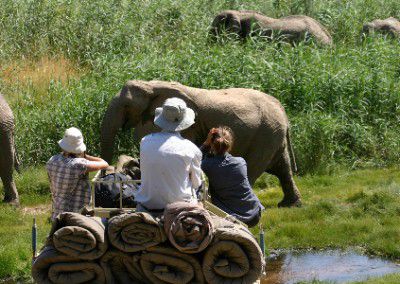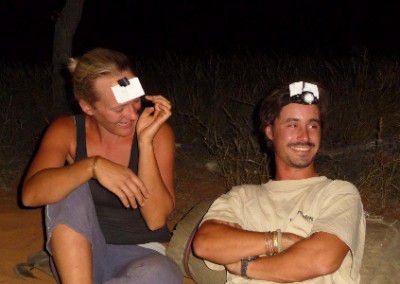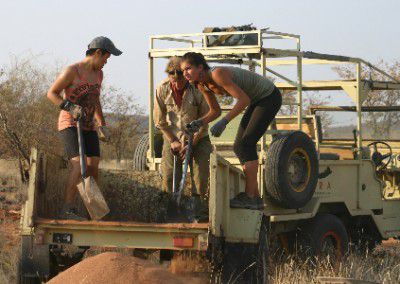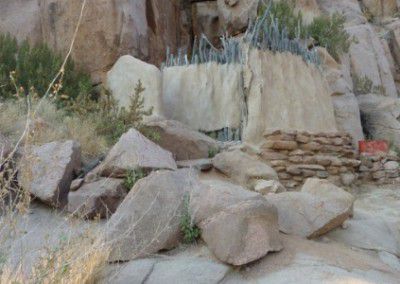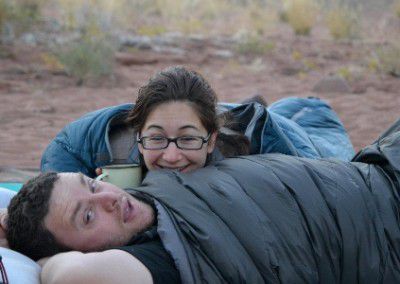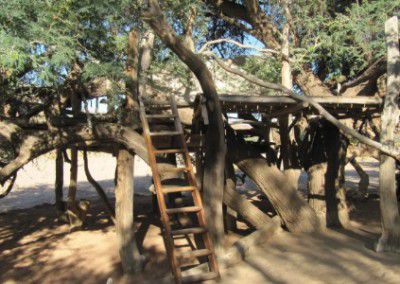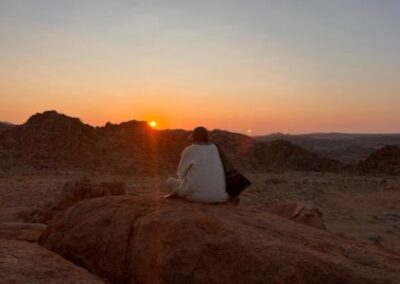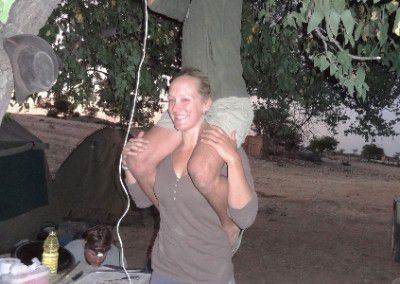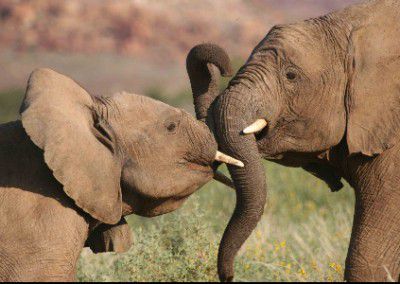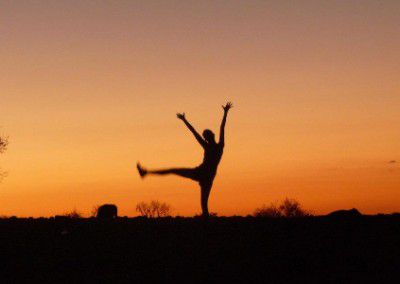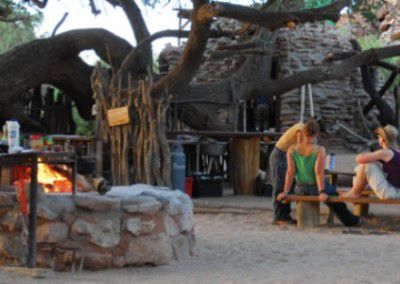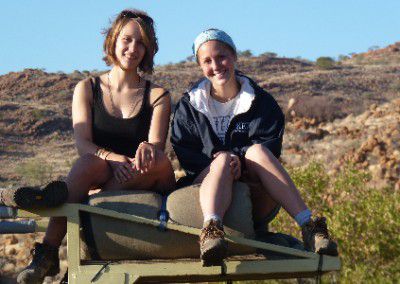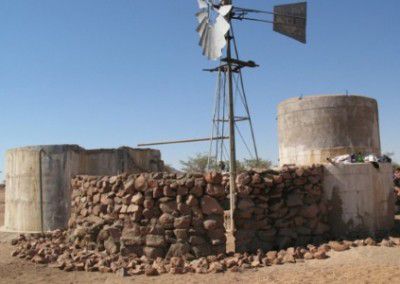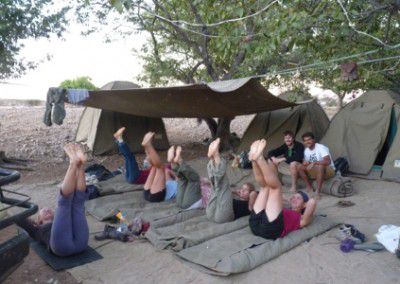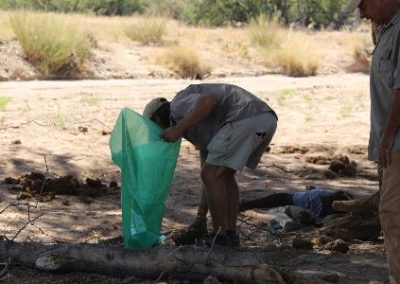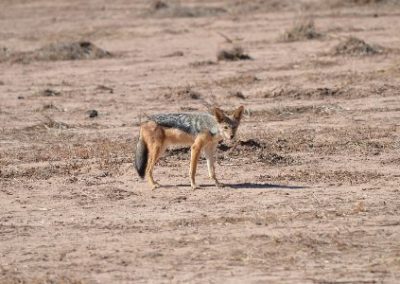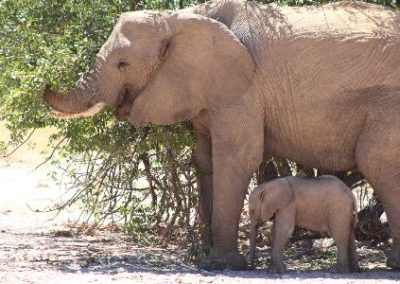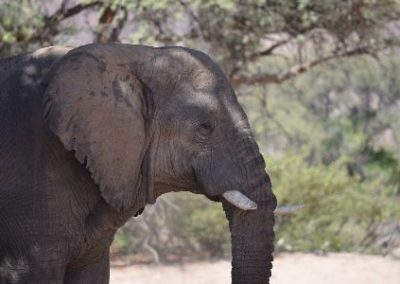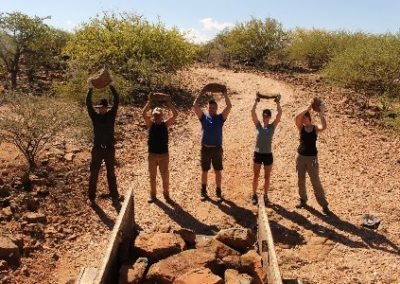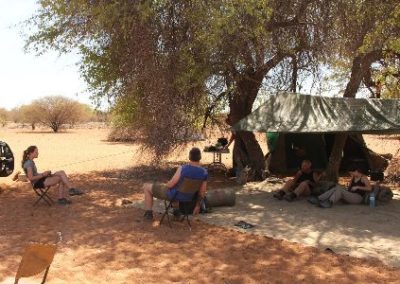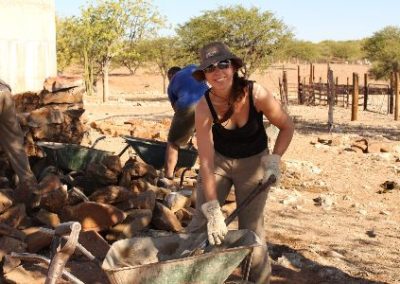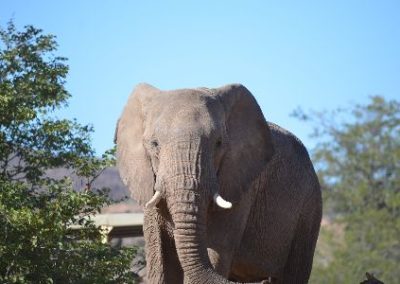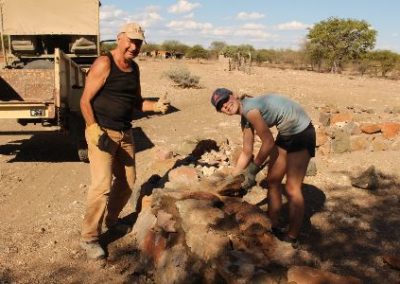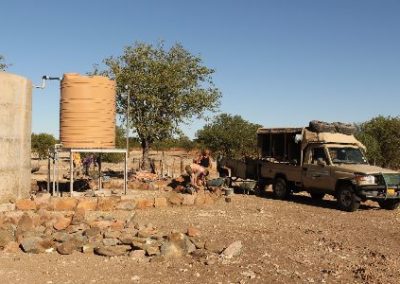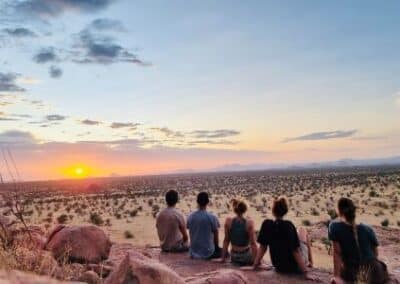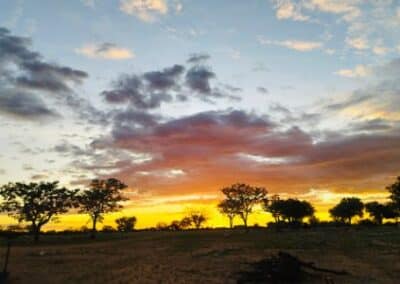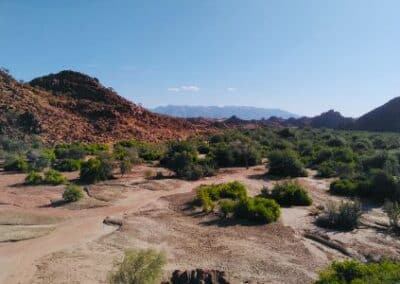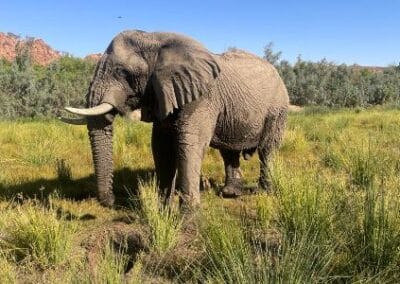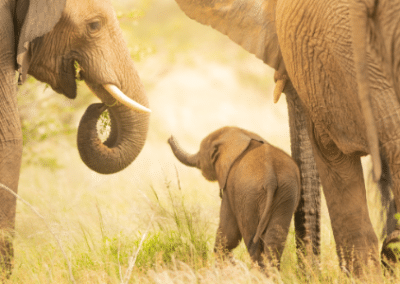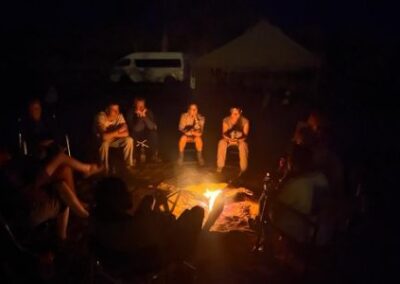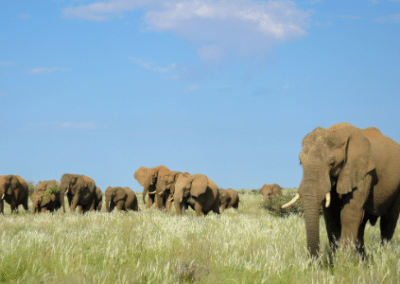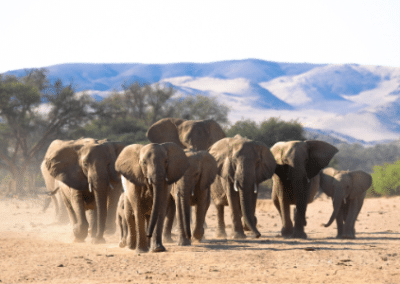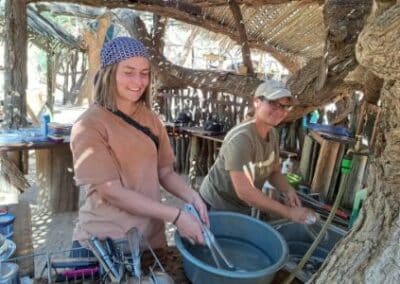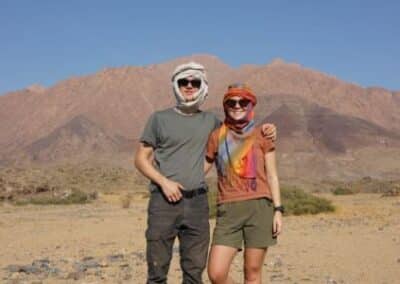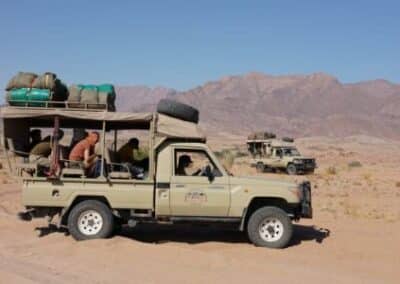- Home
- Destinations
- Africa
- Namibia
- Elephant & Community Water Access Volunteering in Namibia
What is this Elephant & Community Water Access Project in Namibia all about?
Volunteer in Namibia if you want to have a chance to observe elephants in their natural habitat while working on a project providing solutions to the existing elephant-human conflict. A water war is taking place between elephants and the rural communities, as access to water becomes more and more difficult, with desertification and erratic rainfalls limiting water supplies. This project, working with the government, is trying to improve the lives of both, the communities and the elephants, by implementing sustainable solutions to enable them to live side-by-side. In addition to the challenges faced by elephants vis-a-vis water, hunting permits have also been granted to villages as elephants are deemed to be pests in certain areas. Overall, the population of the desert elephants of Damaraland has risen dramatically from 52 to over 600 over the last 20 years. This is great news not only for the elephants but also for the people of Namibia as the elephants generate important revenues through tourism in the region. Education is a key part of the project’s activities ensuring that local people stay and know how to act around elephants. Initiatives involving schools and communities have been set up to educate the locals to enable animals and people to live amicably in this beautiful landscape.
Why choose this Elephant and Community project in Namibia?
- Learn about water issues in the community, as well as how destructive the elephants can be causing shortage to the communities.
- Provide an extra set of hands to rebuild the water structures destroyed by the elephants.
- Learn about the monitoring of elephants and their behaviours in their natural environment.
Role of the Conservation volunteer
The volunteer role is split into 2 distinct weeks during which time you will develop your bush and wildlife skills. You will receive health and safety training before each week. An example of your daily schedule is:
Week 1 – Build week - leave town on Monday morning at 11 am, transfer to camp & unpack
06:00- Those on breakfast duty will wake up and make the fire for tea/coffee and prepare breakfast.
07:30- Start work involving hand mixing cement, collecting rocks, sand and water and building walls.
12:00 – 14:00- Lunch and siesta time!
14:00 – 17:00- Finish work for the day and head back to camp. Those on dinner duty will cook.
Week 2 – Patrol Week (precise times are set by the movements of the elephants)
06:00- Those on breakfast duty will wake up and make the fire for tea/coffee
07:30- Pack the cars and head out to track elephants. Volunteers will collate ID photos, note down GPS positions and help monitor other game. This will be on foot.
12:00- Rest time. Once the elephants move, you will too.
The end of the day depends on the elephants and the work that needs to be done. You will return to camp before dark.
What skills do I need to be an Elephant Conservation volunteer in Namibia?
Volunteers on this project must love the outdoors and have a passion for wildlife. Volunteers should also be able to work as part of a team and have a spirit of adventure.
Volunteers should note that you won’t have access to shower facilities Tuesday to Friday, so being clean should not be a priority! ‘
You will be in a rural setting sometimes sleeping and cooking under the stars. It is recommended that you have a reasonable level of fitness as it may be hot during the day, which can be tiring.
REQUEST MORE INFO RESERVE YOUR PLACE
WHY JOIN THE PROJECT
To see wild elephants upclose
To live in an exciting location
To take part in adventure sports in the local area
FEATURED VIDEO
PROJECT TESTIMONIALS

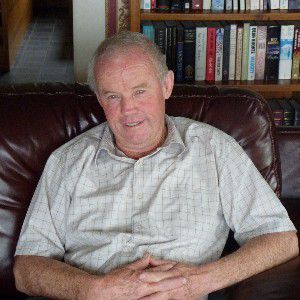
Where will I work as a volunteer in Namibia?
About the Location
Namibia, the former German colony, is located on the west coast of Southern Africa, neighbouring Angola, Zambia and Botswana. With over 300 sunny days a year, Namibia is home to the Kalahari and Namib Deserts, bordering the Atlantic Ocean.
Namibians are committed to living side by side with wildlife, including predators and large mammals. It is the only country in the world where large numbers of rare and endangered wildlife are translocated from national parks to open communal land.
Damaraland, where the project is based, has an amazing rugged landscape, with lots of red hills and where all walks of life roam freely. It boasts stunning scenery and you will often go out during the day and not bump into a single soul. This is a fantastic opportunity to really experience the great outdoors.
Accommodation
Once you have arrived at the project, you will be staying in a beautiful base camp, sleeping on a large platform within a huge Ana Tree – a once-in-a-lifetime opportunity to fall asleep whilst gazing up at the clear African sky and stars. There are two elephant drinking dams in the camp where you will be staying so be prepared to get up close to some of the world’s most magnificent mammals as they often wander through the camp in the evenings!
What to do in your spare time
Namibia is a very beautiful place and you can spend your free time exploring the different towns and cities. You could take a trip down to Swakomund, which is a safe, friendly seaside town and is a lovely place to spend a few days after your volunteering placement. There are lots of activities to keep you entertained in Swakomund, from skydiving, kayaking, dolphin watching and sand boarding to name a few! There are lots of cafes, interesting shops, and restaurants that you can visit too.
If you love to go shopping, then Windhoek, the capital of Namibia, is the best place to seek out fashionable stores and shopping malls. This is a great place to visit if you are keen to pick up some gifts or mementos. There are also local crafts shops and markets that sell handcrafted goods, which are scattered across the country. You’ll find an abundant collection of woodcarvings, Herero dolls, Karosse rugs, and other regional treasures that you can bring home with you after your trip.
Details & Costs
- Duration: 2 – 12 weeks
- Cost: £1256 / $1960 for 2 weeks
Additional pricing in the drop-down menu. Please note that this pricing applies to bookings for travel in 2024 only. For 2025 bookings, please speak with a Kaya advisor. - Requirements: age 18
- Location: Damaraland, Namibia
- Project activities: build walls around water points, monitor and track elephants, record other game activity
- Working hours: build week 6 am- 5 pm; patrol week 6 am – ending hour dependent on elephant activity
- Project availability: closes early December until after New Years
- Arrival day: every other Sunday
What is included
- Accommodation: bed roll and mattress provided on tree platform or in tents
- Food: 3 meals per day (volunteers will help prepare)
- Training: pre-departure information pack, on-site orientation and project induction
- Support: 24-hour support from on- site coordinator
- Fundraising guide
- Working alongside qualified professionals
What is not included
- Flights (to Windhoek International Airport or Walvis Bay Airport)
- Insurance
- Visas
- Police background check: US and UK citizens processed through Kaya (admin fee applies); all other nationalities must provide local police check
- Transfers to and from your airport of arrival (Windhoek International Airport is approx. £30/ $36; Walvis Bay is approx. £15 /$19) *rates may vary
- Overnight stay in Swakopmund on the Sunday of your arrival and on the Friday of your departure (approximately £54/$66 for a bed in a shared room or £76/$93 for a single room) *rates may vary
- On-site wifi
- Friday, Saturday & Sunday accommodations if you stay more than two weeks
- Any costs for COVID-19 PCR tests required pre-departure and in-country
2024 Dates
| Start Days | |
|---|---|
| January | 1st, 15th, 29th |
| February | 12th, 26th |
| March | 11th, 25th |
| April | 8th |
| May | 6th, 20th |
| June | 3rd, 17th |
| July | 1st, 15th, 29th |
| August | 12th, 26th |
| September | 9th, 23rd |
| October | 7th, 21st |
| November | 4th, 18th |
| December | 2nd |
2025 Dates
| Start Days | |
|---|---|
| January | 6th, 20th |
| February | 3rd, 17th |
| March | 3rd,17th. 31st |
| April | 14th, 28th |
| May | 12th, 26th |
| June | 9th, 23rd |
| July | 7th, 21st |
| August | 4th, 18th |
| September | 1st, 15th, 29th |
| October | 13th, 27th |
| November | 10th, 24th |
| December | 8th |
Easy 4-step application process
APPLY ONLINE
Apply online and pay your application fee to apply for your space on your chosen project. Our advisors will then contact you to guide you through the next steps.
TELEPHONE INTERVIEW
Once we’ve received your application, we’ll review your details and be in touch to arrange your informal telephone interview with your Kaya Placement Advisor.
CONFIRMATION
Following your interview, we will provide you a placement offer. Once you are ready to confirm your placement and dates, you can pay your confirmation fee to book and secure your space.
GET PREPARED
When you have confirmed your project dates we'll send you your Welcome Pack and lots of other helpful information to assist you with preparing for your placement.

Join a 2-week group micro-internship that combines lectures, interactive discussions on sustainability models, learn about the challenges and successes of these in Costa Rica and finish off the program with practical fieldwork.
wishlistRemove from
wishlist
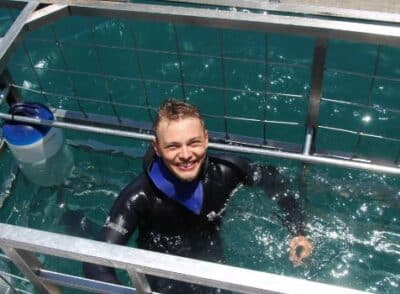
Join this Marine Big 5 Volunteer Program in Gansbaai South Africa and contribute to the protection of the Cape Coast ecosystem!
wishlistRemove from
wishlist
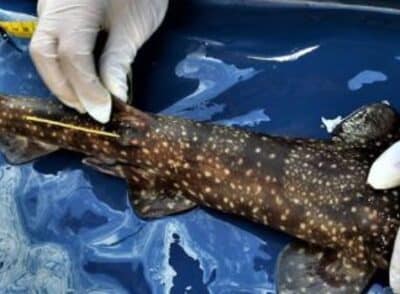
Join this Scientific Skills Based Marine Internship in Gansbaai South Africa as and assist world class biologists and researchers.
wishlistRemove from
wishlist
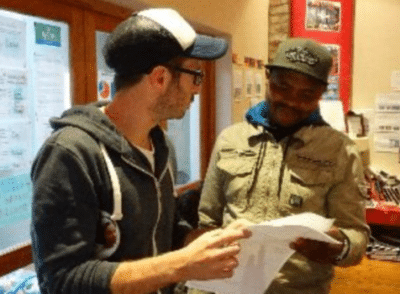
Join the clean and renewable energy internship in South Africa and make an impact environmentally or economically, depending on your field!
wishlistRemove from
wishlist
